Hudlin and Cowan Prepare Fans for Milestone’s Return in the Infinite Edition
CBR speaks to Milestone creators Reginald Hudlin and Denys Cowan about Milestone Returns #0: Infinite Edition and the Dakota Universe.
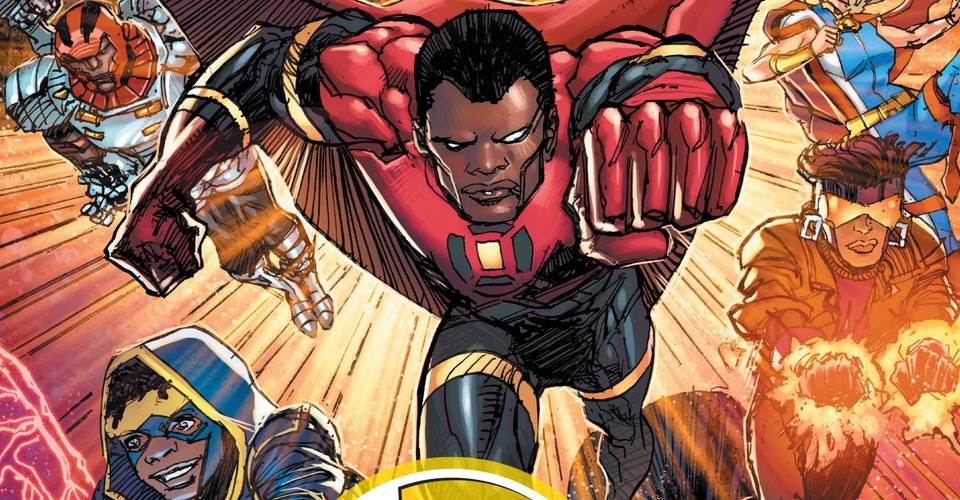
Fans may have seen a glimpse of the returning Milestone Comics during last year’s DC FanDome virtual convention, but the release of Milestone Returns #0: Infinite Edition reveals new details of the planned relaunch, including rewriting Static’s origin in the Big Bang event. Two of the architects behind Milestone’s revival are Reginald Hudlin and Denys Cowan, who lend their writing and artistic talents, respectively, on Milestone’s biggest titles.
CBR attended a press junket with Hudlin and Cowan, where we heard their reactions to Milestone’s return, updates to the Big Bang and Milestone heroes — Static, Icon, Rocket and Hardware — their thoughts on a Milestone Cinematic Universe and more.
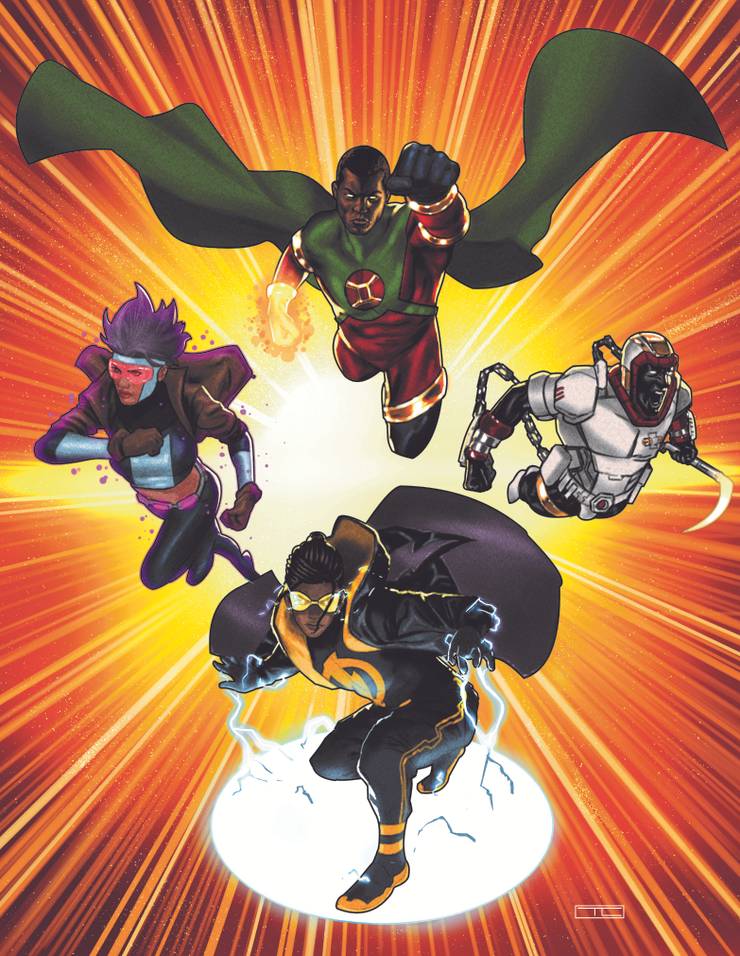
CBR: How does it feel to be on the brink of finally bringing Milestone back with all new original content?
Reginald Hudlin: It’s fantastic. It’s been a long journey. For myself, I remember being sitting in the offices of the original Milestone, talking with Denys, Dwayne McDuffie, Derek Dingle, ah, and them describing the books they’re doing and how exciting it all was, and wanting to be a part of it back then. But I had just started my day job of making movies, so I thought maybe that’d be a little much. But then to be invited to be a part again, by Denys and Derek, and the long road we’ve had to get these books going. And then showing those books to my kids, and my kids being so hyped. My son and my daughter going, “Oh, Daddy, this is cool.” And let me tell you something, my kids don’t always say, “That is cool.” So it’s very satisfying.
Denys Cowan: We’re all very excited to relaunch Milestone. We’re particularly excited to do it with Reggie, because as he mentioned, when we first formed Milestone, we wanted him to be a part of it so badly. The reason why he was up in our office is that we were begging him to join us. And it was like a late-night session where we’re just surrounding him going, “You’ve got to do it, man.” And he’s like, “I’ve got to do this movie.” It was like a movie in itself. Eventually, after 30 years past, we finally got him on board. And now we’re ready to go forward with Reggie. So we’re all very excited that we’re relaunching. And very excited to go forward with DC.
How, if at all, is making Milestone comics today different than it was years ago?
Cowan: In a way, it’s so different. Technologies different, the way we’re doing the books is different. We used to operate out of an office and we were kind of centralized that way, with Dwayne and myself, and Derek and Michael Davis, all working together. But now it’s 2020, 2021, there’s been a pandemic, there’s new technology and everything is split up. It’s a whole different work environment. The thing that remains the same is the mission. The mission for us is to introduce these characters of color to an audience that has not seen them before. And to represent, truly what these characters are, and what we are at Milestone. So our mission is the same, and that hasn’t changed. But man, everything else has, from the way we draw them to the way we present them.
Hudlin: So much of it is really just remaining true to the original mission. Because it’s not just, “Oh, we’re gonna do black characters.” It’s empowering people of color to come in and do their best work. And what’s fantastic is that now you have several generations of Black writers, Black artists and people of color. We have Black folks, we have Latin folks, we have Asian folks, all kind of white folks all working on the books and finding new voices, as well as having a legend like Denys Cowan. So it’s a great combination of folks with a lot of experience and exciting new voices. And all of them are great. Denys is drawing some books, I’m writing some books, but man, the colleagues that we’re working with are incredible. And it’s so exciting to work alongside them and to be inspired by them. It’s a wonderful process.
Cowan: Reggie and I do our thing, but it’s really about the other talents on the books. It’s about our Static artists, our Icon artists. There are brilliant people working with us. We have writers who are working with us who are equally brilliant. So that’s what really gets us excited. As much as we like doing the books ourselves, we can’t do all of them, so the people we surround ourselves with are the best that we possibly can find. And they’re amazing.
Milestone Returns #0: Infinite Edition opens in the midst of a Black Lives Matter protest. This relaunch has been in the works for a while, but how much of the events of the past few years shaped the stories you want to tell now?
Hudlin: A big part of it. When we first got together and decided to relaunch Milestone, we did not want it to be a nostalgia exercise. Milestone was so exciting because it was cutting edge in the moment. So it wasn’t about going back to what was cutting edge back then. What’s the cutting edge now? And we have to be relevant to what’s happening in the culture. And certainly, tragically, police brutality, the lack of accountability in our justice system, you can’t get away from it. It’s one of the defining issues of our time. So there’s no way that we could do this book and not address that issue, particularly since so many of our characters are young people. Young people walk around with a target on their back and it doesn’t matter if they’re innocent or not. The price for jaywalking shouldn’t be death. So it felt like the times demand that we start the story with what’s happening right now in the real world.
Cowan: It really did. We’ve addressed these issues in the previous incarnation of Milestone. There were a lot of issues on police brutality, we talked about that in Icon. But bringing it to the forefront as an issue now, when it’s so prevalent in what’s happening today is something new. And it felt very necessary to tell the stories that are relevant for today.
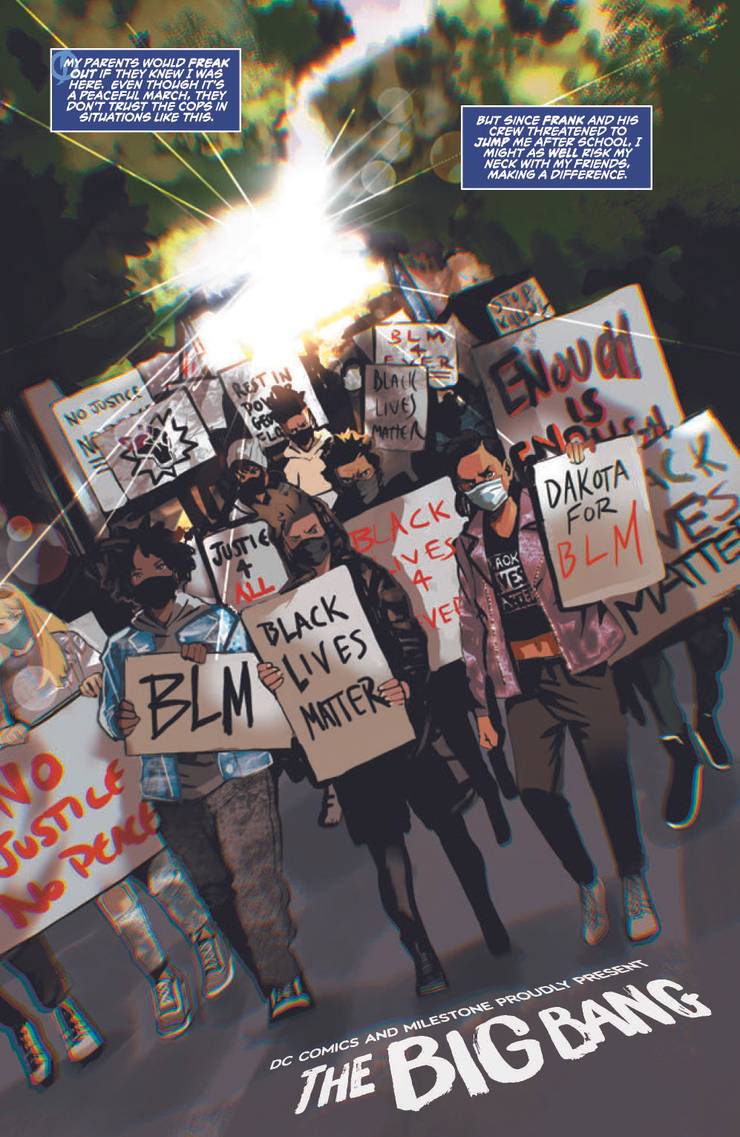
Milestone Returns opens with explicit imagery that calls to mind protests and violence that we’ve seen, not just in 2020, but many years prior. How careful are you to approach topical narratives with regards to potentially triggering readers’ recent traumas?
Hudlin: This whole trigger issue, it’s an interesting thing, because I don’t know what that means. Does that mean, “Oh, you don’t want to upset people?” Look, I don’t want to traumatize anyone who has been traumatized. At the same time, I’m not here to avoid what’s happening. You have to talk about reality. Who’s being triggered? And why? If it’s like, “I want to stick my head in the sand,” well, maybe you need your shoulder shaken.
Cowan: You don’t want to get anybody upset. But on the other hand, there’s the issue of Black people being murdered. That’s a big triggering issue for us. That’s not something we’re going to sit back and not say something about. So we’ll continue to go forward speaking about the things that are important to us and to our community.
I’ve always enjoyed the relationship between Virgil and his father in the Static comics. How important is it to you to have a prominent teen Black hero who has a strong father figure, rather than coming from a broken home or being an orphan?
Hudlin: Yes, it is very important for me. That’s kind of been a running theme in my work. From House Party, when you look at Kid’s relationship to his father, who was played by Robin Harris, through Safety — my last movie that I did for Disney Channel, where a kid’s little big brother has to step in as his father because he’s alone in world. We’ve had a lot of fantastic Black Girl Magic in the last decade. And Black women are finally having their voices heard. They’re being put in positions of power where they can make movies and TV shows, and it’s fantastic. And the entire country is better because of that. I think right now we’ve got to continue to amplify those voices, and make sure that Black men and Black boys have representation to match all the beauty we’re seeing with Black women and their expression. As a father of a daughter, I want to encourage all these great Black men to step up and be like, “Hey, here, we all are. Here’s that next generation, go for the greatness.”
Static remains a very popular character with millennials and even Gen Z, thanks to the Static Shock cartoon. How does the return of Milestone evolve and grow Static beyond how audiences may remember him?
Cowan: Well, you can do a feature film with him [laughs]. If you want people to be aware of the character, there is that. It’s like the distribution network, and the ways of reaching people are so different now than they were in 1992. When we launched, there’s so many ways to get to people. Our partners at DC are so good at penetrating an audience and getting to the people that we need to get to, that we’re pretty confident that we can do it from online digital, to print, to our animation partners and our live-action partners. There’s a lot of ways to reach an audience now that were not available to us in 1982. I think we’re well-positioned to get a lot of attention.
Hudlin: I think we’re really determined. I always thought that Denys and the gang were very wise by naming their company Milestone Media, and not Milestone Comics. One of the things when we got back together, we were determined to make sure that we were a multi-platform company from the very beginning. I can tell you that the script for the live-action Static Shock movie is well on its way, and it’s very exciting. And as Denys mentioned, we’re talking to the animation people, to the podcast people, we’re going to be touching audiences on every possible platform.
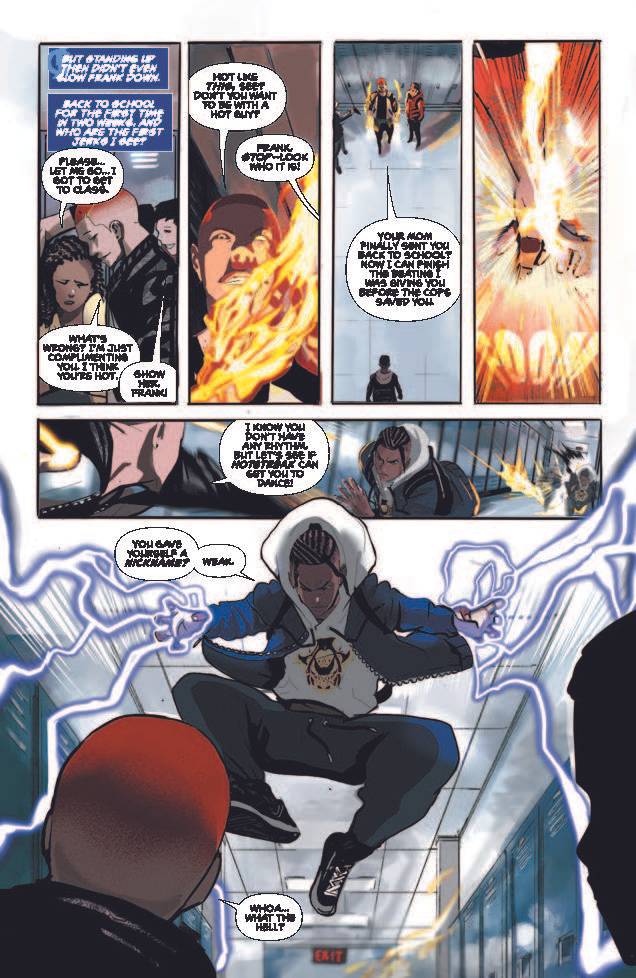
CBR: Aside from changes to the Big Bang, will there be any other updates made to the Milestone characters and universe that fans should look out for?
Hudlin: Yes. Characters have to remain relevant and current. The main thing is, when you look at the big innovations in terms of comic book storytelling, it comes from looking at the model of what comic books are, what superheroes are and going, “Let’s question that,” right? When you had DC invent all these great characters in the 1940s, and then Marvel came out in the ‘60s, and then you had Milestone and Image came out in the ‘90s. So then you’ve got what Mark Millar in Australia started doing at the beginning of the century. There’s always someone who just goes, “Let’s just question the rules.”
So that’s what we do with every issue. Why does it have to go that way? How would it really go? So we ask ourselves that question constantly. And that leads us in new directions. Some people go, “Oh, you changed something I don’t like.” Well, you can get the old books. They’re available online, and we’re going to reprint them and you can read them. But we’re not interested in simply telling the same story over again. We want to be relevant to right now. What are the stories that need to be told right now? That’s what Miles Davis said, “Jazz is the music that the day calls for.” We’re playing music for today.
Cowan: If you want to look for the obvious changes, you can just look at the characters visually. They’ve changed since the original incarnation. Icon’s costume is different. Rocket is different. Static has a totally unique new look that we just love. Hardware, he was always interchangeable with his outfit and the things he wore. So you’re not going to notice the biggest change with him, though you’ll see some stuff eventually that will blow your mind with Hardware. But as far as that goes, look for the visual cues too. Because here’s some stuff that’s different, yet familiar, but different enough to make it very exciting.
There was a brief period during the New 52 where Static and other Milestone characters were integrated into the DC Universe. Do you think these characters are better off having their own universe rather than coexisting with characters like Superman?
Hudlin: Milestone did a lot of things right off the top. And one of them was saying, “Dakota is its own universe separate from the DCU.” They still managed to do some amazing crossover stories. I think there’ll be a lot of surprises when people continue to read the books. But there’s no question that we don’t want to be beholden to whatever’s happening in the continuity of the DCU, which is great. I read those stories, too. But we’re telling our own stories, and we need our own universe to do it.
On the note of Static having a new look, what design influences did you look at? And what visual touchstones inform Static’s new costume and visual vibe?
Cowan: I can answer that easily. What we did was, we looked around at different artists, and we found a guy named Nikolas Draper-Ivey, who is excellent. While we may have provided him with a few ideas on how Static should look, he certainly was a fan of the book. He came up with that unique look. He came up with that costume design, and it’s amazing. It’s amazing what he’s done. So the way we did it was we hired somebody who’s really great to do it. And he came up with something really unique. We’re really excited about what he did.
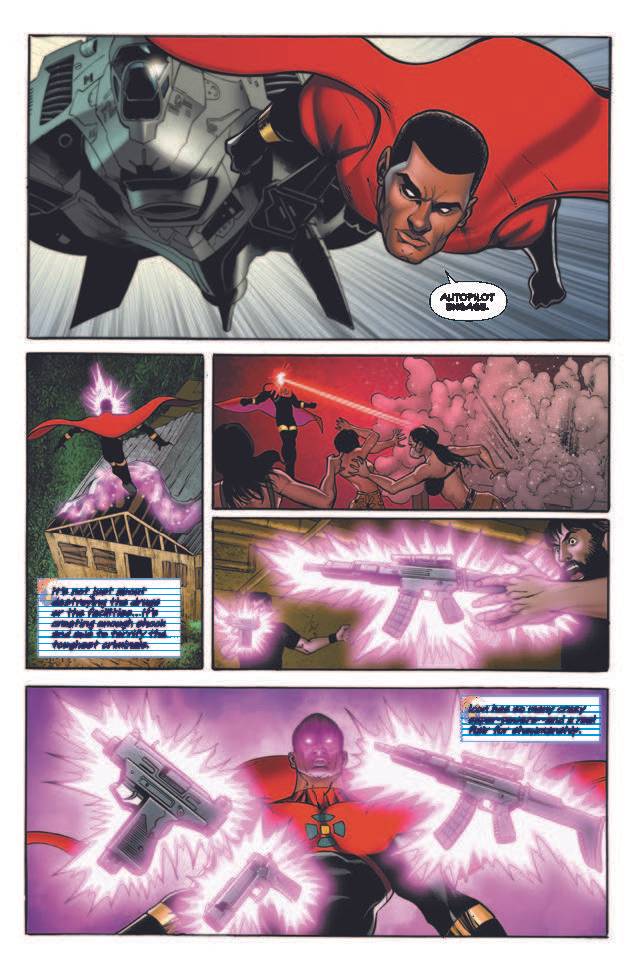
CBR: Fans love to debate the merits of having a cinematic universe for superhero films. What are your thoughts on cinematic universes, and will Static’s movie set one up or stand on its own?
Hudlin: Look, I think whenever you tell a story, and you go from medium to medium, that’s a tremendous opportunity to take advantage of the unique qualities of that medium. And how you tell a story in television is different from how you tell a story in a movie, and versus how you tell a story in a comic book. They can all be really different, and all be really good. The Batman TV show from 1966 is different from the Neal Adams comic book in the 1970s, which is different from the Christopher Nolan movies. But they’re all great, and they’re really different. And I believe in leaning into making the most of each medium and each platform and all the different audiences.
How are you working to include and honor Dwayne McDuffie’s memory? Is his family involved in this relaunch of Milestone Media?
Cowan: Dwayne McDuffie was such an important part of what we did. He was such a linchpin in how we started and the architect of so much that happened with Milestone, that it’s impossible to continue without the DNA of what he did, in almost everything that we’ve done and what we’re doing now. So in that sense, yeah, we’re continuing the legacy of Dwayne McDuffie, because it’s inherent in all the characters that came out of that first incarnation of the Dakota Universe. You’ll notice some things. You’ll see [it] on the first Hardware cover. You’ll see some tributes to Dwayne in unexpected places. Our fallen colleague is never far from our hearts ever. He’s very close to what we do. Charlotte, his widow, is wonderful. We’re all good with her, and the McDuffie family and Milestone will go forward in the future and keep forging our path together. That’s what’s going on with the family. That’s what’s going on with Dwayne’s legacy. It’s solid with us.
The Milestone books are currently being built as Season One. What does this mean? And how will this inform the reading experience?
Hudlin: I think it just makes the books more accessible to people. I’ve got a 13 and a 16-year-old, who love superhero stuff. They don’t read comic books, that’s hurtful [laughs]. It’s like, “I just want people to know, okay, well, what is this? And is the whole story in here? And what’s that?” So if you explain to people this is a story arc, this is a season. In terms of our release schedule, we’re releasing Static, and then we’re going to release Icon and Rocket. We’re releasing Hardware. So they’re the books that are going to come out, overlapping serially. But I want people to get it like, “Okay, this is the first season. And each book is sort of an episode. And I get that.” I think a lot of people make presumptions about how to read a comic book. Do I go from page to page? Do I go straight down or do I go across? So we’re constantly trying to figure out how to make sure that books are accepted. Hopefully, our books are a bunch of people’s first comic books, and that we make it as accessible to that first-time reader as possible.
Cowan: People understand Season 1, Season 2, Season 3 better than they might understand open-ended series that may go on forever, or miniseries, four-issue miniseries or whatever. Let’s try something different. Let’s try something new. Let’s see the seasons of our episodic comic book adventure. That’s what that is.
Many consider Static part of the DC family of heroes and are surprised that DC doesn’t use him more. Without knowing the partnership between DC and Milestone, how is it still being considered part of the DC Pantheon, while still owning the characters yourself as Milestone?
Hudlin: I think it’s the best of both worlds. We grew up reading DC Comics, and I grew up reading Mad Magazine. It’s a part of the DC Comics Empire, as different as Mad Magazine is from Superman and Wonder Woman. What’s been great in terms of reviving the company has been working with Jim Lee, who’s always been an ally. As Denys and the guys were launching Milestone, he was launching Image. So he understands it from both sides as well, and has been supportive of us being the shepherds of this line and being true to what it should be. And meanwhile, you know, DC is doing great.
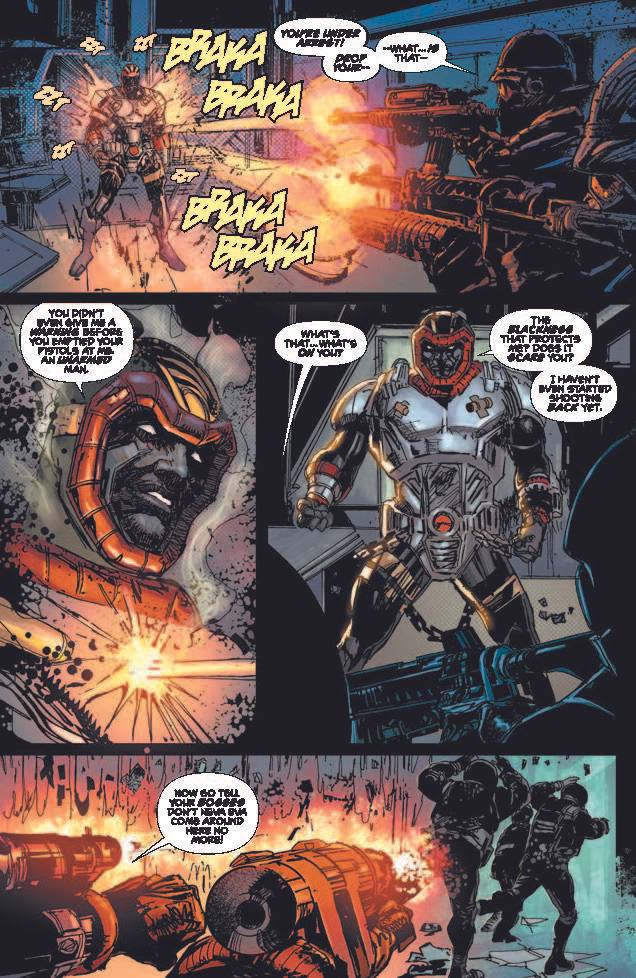
Has Milestone Returns been an opportunity to revisit or explore any abandoned stories, for whatever reason, that couldn’t be done during the original era?
Cowan: No, I think we did a lot of the stories in the original that we wanted to do. There were very few stones left unturned. At one point, Dwayne and I and a bunch of other creators came back and wrapped up a lot of the storylines, where we came back and did I think Milestone Forever issues. But we pretty much told a lot of those stories. So this is a new time in a new era. But there wasn’t a whole lot of unfinished things, though. Our new writers, and the ones we’re working with on some new titles coming up, may find some stuff that our old writers didn’t cover or didn’t finish, and they’re certainly invited to play in that world and develop those stories.
Hudlin: What’s beautiful to me about the process of comic books, is you’re making a cultural quilt, right? And when you come in to write on a book, or draw on a book, you’re adding a patch to the quilt. But collectively, we’re all making it, so we invite them to go, “Well, what do you see that we don’t see?” To me, that’s where the conversation always has to begin. What I did with Black Panther, I had an agenda of stories I had never seen with that character. And that worked. I said, “Look, do you need siblings? Let’s give them a sister.” No one had done that before, in the 70 years of his existence, but people liked it. So we invite our writers to do the same thing. What should we do that we haven’t done?
Denys, your eyes seem to light up when talking about writer Vita Ayala. Can you talk about working with them and trusting them with the character of Static?
Cowan: My eyes light up because working with Vita Ayala and Nikolas, they’re both young. They’re both crazy energy. And they both take the characters in places where I go, “Are you sure you want to do that?” But then we realize that’s exactly what they should be doing. They should be taking the character in the book and places where even I, one of the creators goes, “Oh my god, this is kind of edgy, you know?” So my eyes lit up because we’re very happy with what they’re doing. And we can’t wait for people to see it because it’s different. It’s exciting comics. It’s really what is cutting edge and what makes it Milestone. So we’re very excited. They’re great.
Not to leave him untouched in this, but it’s great actually to have one of the Milestone OG’s in ChrisCross. How do you weave him into this?
Cowan: Well, I can answer a little bit of that. ChrisCross is one of our original artists. Chris is one of the guys who came in off the street literally with a portfolio. And he reminded me of this the other day: He came in with a rain-soaked portfolio, opens it up, and I look at it and go, “Where have you been?” And I call all the other editors and say, “Look at this guy’s stuff.” And we gave him an assignment right then and there. And he walked out with some trading cards and stuff. He’s been working with us ever since.
ChrisCross on Static Shock, working with that team, means everything. Because he’s the experience. He’s experienced glue that holds it all together, that makes it all work. He’s a storyteller, along with the other storytellers, but he’s an original guy. So we’re very happy to have him working with them and providing the layouts and the storytelling to make that book successful. It’s great. We’re big fans of ChrisCross.
Milestone Returns #0: Infinite Edition is on sale from DC.
